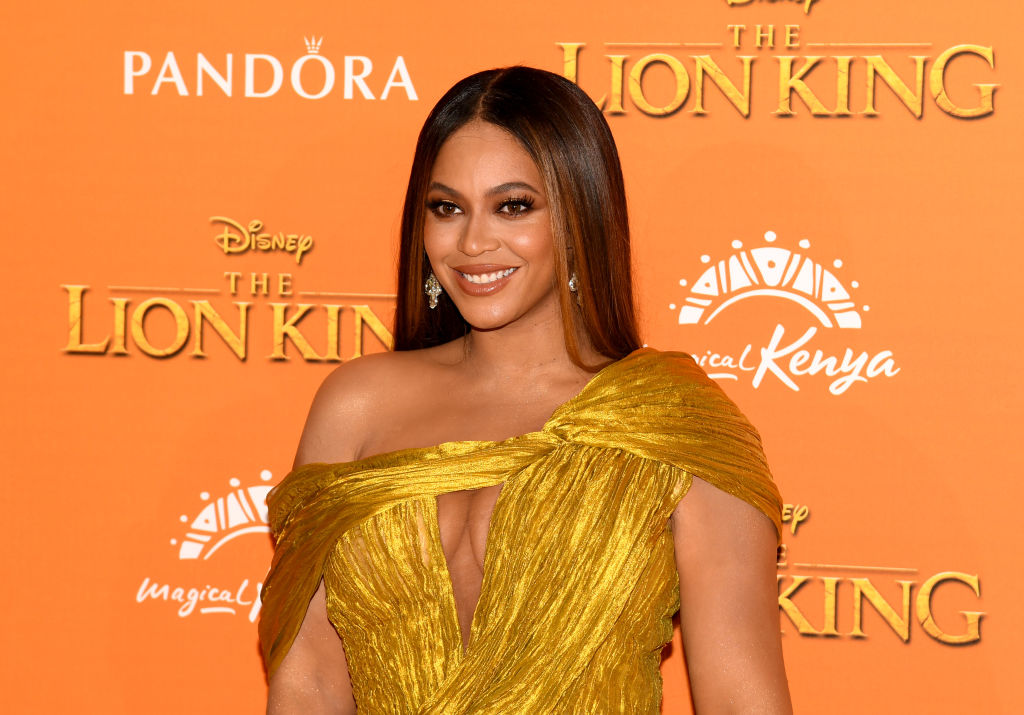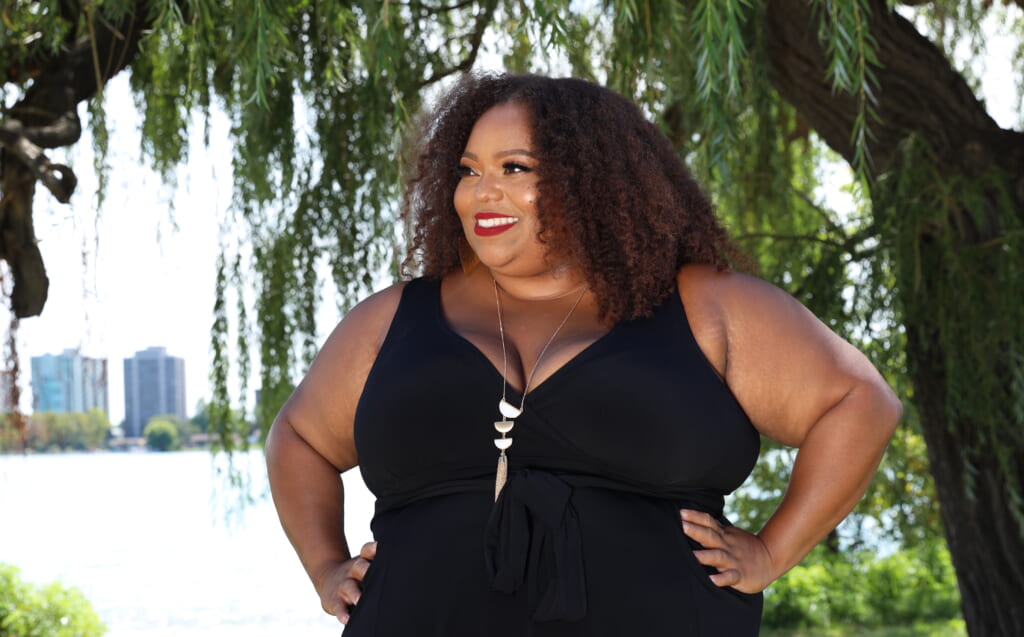Beyoncé, why don’t you love me? Unpacking an icon and fat acceptance
OPINION: Beyoncé loves and exalts women, especially Black women; just not fat Black women

I love Beyoncé, I do.
I mean does she really leave you much of a choice?
Bey is arguably one of the biggest pop culture influences of all time, and actually has the talent and work ethic to back it up, shade intended. In addition to being a mega-talented superstar and keen businesswoman with multiple endeavors in music, film and fashion, for a number of years, Beyoncé has also been using her platform to showcase the talents of other girls and women, primarily her fellow Black sisters.
Parkwood Entertainment, Bey’s entertainment management and production company, is not only responsible for her career growth and transition as an artist from 2011 onward (since she parted ways with her father, Mathew Knowles, as her manager,) but also the career and development of others, including dynamic sister duo Chloe x Halle.
Read More: Beyonce drops epic ‘Already’ video ahead of ‘Black Is King’ premiere
Beyoncé is notoriously known and lauded for hiring Black women to oversee her creative projects, such as music video and film director Melina Matsoukas, while her own cousin, Angie Beyincé, serves as vice president of operations at Parkwood. Solange, her sister, a singer/musician and star in her own right, wrote songs for Destiny’s Child and Beyoncé or years before becoming a solo artist. I recall being awed when Beyoncé debuted her all-women band, The Suga Mamas, in her music video for “Irreplaceable” in 2007, and subsequently made them her touring band for The Beyoncé Experience world tour and several tours to follow. Bottom line, Beyoncé loves and exalts women, especially Black women; just not fat Black women.
Yeah, I said it.
Now before I get attacked, let me inform you that I am a card-carrying member of the BeyHive, but I do not think Beyoncé is beyond critique or reproach. I’ve been rocking with Queen B since LeToya and LaTavia were a part of the original Destiny’s Child. From “Dangerously in Love” to “Lemonade,” and yes, even Carmen: A Hip Hopera to last year’s live-action The Lion King, I’ve supported Bey’s vast career: the good, the amazing, the fierce, and dare I say, even the mediocre. A common thread through it all has been her undeniable hard work and dedication to her grind, and pushing against the glass ceilings people try to box female entertainers in, all while bringing other Black and brown girls and women along with her. In more recent years, she’s utilized her colossal influence to represent and amplify Black diasporic culture. But again, I ask, where the big girls at?

It’s no secret that plus size people, especially women, are seen as the least physically desirable in current society, in spite of the average American woman being a size 16. Additionally, Black women were unfairly and devastatingly named as the least desired in an OKCupid study that followed dating app trends. This study proceeded the infamous since-removed article that Psychology Today blogger Satoshi Kanazawa published on the magazine’s website proclaiming that Black women are the least attractive women of all races. Based on this collection of receipts, and my lived experience, the combination of being a Black and larger bodied woman in an overtly anti-Black, fatphobic society leaves very few spaces for fat, Black women to be truly seen and celebrated.
Let’s go back to 2016 momentarily, when I was a graduate student in very white Santa Cruz, California at UC Santa Cruz. It was a few short months before graduation, and I was completely burned out. The workload, racism and discrimination I’d been subjected to the second time around at an institution of higher learning—where I was the only Black person in my program and most of my loved ones were 2,500 miles away—had worn me down, and tried to break my spirit. I will never forget when Lemonade premiered on HBO, my best friend, Aleesa, calling me super excited and telling me I had to watch it ASAP. She was at a loss for words, but kept repeating how beautiful and powerful it was, and that I just had to watch for myself.
As a full time student, I could not afford cable, so I had to wait until she released the album with the accompanying film the next day, and watched it the moment I got home from campus with a fellow Black girl who was eager to watch after all the buzz we’d been hearing for 24 hours. We were mesmerized by how aesthetically gorgeous the visuals were. How glorious, and majestic, and Black Lemonade was. How the themes of Intuition, Denial, Anger, Apathy, Emptiness, Accountability, Reformation, Forgiveness, Resurrection, Hope and Redemption wove together the journey of the pain and impact of infidelity, to the revival of commitment, and ultimate healing and celebration of Black love; a love that has survived centuries of attempted murder.
Lemonade was revolutionary, and touted as a love letter to Black women, which it truly was. As moved as I was by the array of Black women’s beauty and intricacies visually represented in the project—the range in complexion, hair type and style, height, shape, and overall features—I could not help but notice that everyone was invited to the table except fat Black women. Almost every type of Black feminine aesthetic was celebrated except the plush bodies that have been relegated as non-sexual and exclusively matronly. And that hurt, deeply, because as brother Malcolm wisely identified and Beyoncé reiterated, the Black woman is the most disrespected, unprotected, and neglected person in America, though I’d venture to say the world. Fat Black women triply so, at the intersection of race, gender, AND size bias.
I forgave Bey, albeit always a sore spot when I watch Lemonade, because I do not fully see myself in it, and I so badly want to. I forgave her because she should not have to shoulder the burden of representing the entire culture, though every Black person is forced to do so in any non-Black space we occupy. Also, like everyone else, she has been force-fed fatphobia and Eurocentric beauty ideals through media, diet culture and especially as an entertainer, who is required to be as close to society’s definition of perfection as possible to reach the heights of success she has—especially being a Black woman, working twice as hard to get half as much.
Then in 2018 and 2019 came Beychella and Homecoming, respectively, which featured two plus size Black women dancers, and I was elated. When I saw those two fierce fellow big girls pop on my screen, I jumped out of my seat and started dancing with them. I even got a little teary, as I often do when I see plus size Black women killing it, because finally people get to see what I’ve always known: that we are worthy to be celebrated and represented, and that we are just as talented, sexy, and beautiful as our smaller counterparts.

I thought, finally, Beyoncé sees us! I was content, and looking forward to more size diversity in her overall brand. Then in January of 2020, the Adidas x IVY PARK collection came out, and as I saw celebrity after celebrity, influencers, and fashion bloggers get their exclusive Beyoncé Box of the pieces from the line, I realized that again, Beyoncé left the fat girls out. The collection stops at size 12/14, which is a size Large by most clothing standards.
I recall being perplexed because in a space and time where Beyoncé could be more body/size inclusive, she still chooses not to be. Brands that have historically excluded plus size are now being more inclusive, and we see “big girls,” like Lizzo and Chika, finally getting the chance to shine in a world that has been notoriously shaming and purposely left us out, pushing us deep into the margins of society; and here was our beloved reigning Queen of Pop Culture doing it again.
Read More: Beyoncé releases new trailer for ‘Black is King’
This, I could not ignore or overlook. This was a very intentional snub, especially when Rihanna’s Savage x Fenty lingerie brand goes up to a 3X (size 22-24), and helped push Rihanna onto the billionaire track status, thanks in part to the range of sizes, which allows more people to wear and therefore buy her clothes. Even from a capitalistic perspective, it would literally make Beyoncé even more money if she included fat women in her branding, yet, even that doesn’t seem to be motivation enough.
Then exactly one month ago, Black is King was released on Disney+, and as Blackity Black, beautiful, and celebratory of Black/African culture it is, once more plus size Black women were not represented and left out, and now I can’t help but to take it personally. So, now I have to ask: Beyoncé, in the words of your own song, one I’ve listened to often when I feel hurt and rejected, why don’t you love me? But they say don’t ask questions you already know the answer to.

Ryan Pearson is a native Detroiter, writer, innate creative, cinephile, and co-director of Detroit Narrative Agency (DNA). She is a body liberation/fat acceptance advocate and activist whose primary focus is examining body image issues amongst Black women, girls, and femmes that stem from white supremacy and patriarchy. She also creates content that centers fat Black feminine bodies as sensual, erotic, and desirable. Outside of work, Ryan spends time traveling, enjoying an array of art forms, being in community, and engaging in holistic healing practices. She is also a sensual movement practitioner and facilitator. You can follow her on Instagram @rdanipear.
Have you subscribed to theGrio’s new podcast “Dear Culture”? Download our newest episodes now!
